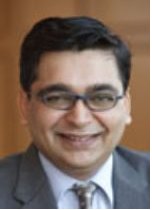There’s a market at the bottom of the economic pyramid valued at $5 trillion dollars. But the real allure of this market, at least for me, is the opportunity to help its 4 billion people access healthcare, educational and basic living services. How can businesses access this market and how can they do it without exploiting the market’s individuals?
 This question led me to Unmesh Brahme who focuses on how companies can become involved in base of the pyramid (BoP) business as a way to alleviate poverty. But what really sold me on Unmesh as an interviewee for Cause Capitalism is his combined experience in international corporate social responsibility and cause marketing (he set up Ogilvy & Mather’s and HSBC’s sustainability programs in India) and emerging economies through work with Oxfam and the World Bank.
This question led me to Unmesh Brahme who focuses on how companies can become involved in base of the pyramid (BoP) business as a way to alleviate poverty. But what really sold me on Unmesh as an interviewee for Cause Capitalism is his combined experience in international corporate social responsibility and cause marketing (he set up Ogilvy & Mather’s and HSBC’s sustainability programs in India) and emerging economies through work with Oxfam and the World Bank.
Unmesh gave a fantastic interview, sharing a cause marketing campaign he led that took place on farms rather than supermarket shelves, offering up entry points to the BoP market for businesses and speaking about his shifting perspective on sustainability, CSR and management education. It’s absolutely worth a listen. Right-click and download for the MP3 or click the player below.
Audio clip: Adobe Flash Player (version 9 or above) is required to play this audio clip. Download the latest version here. You also need to have JavaScript enabled in your browser.
I’ve highlighted specific points below, which I hope will draw you into the larger conversation.
- Unmesh led an interesting campaign with Castrol in India. By asking Castrol, What’s your brand problem? he realized that they lacked brand saliency with farmers during draught times (Castrol sold motor oil for farm machinery). Instead of investing in TV, print or radio advertising, Castrol used its marketing budget to help farmers conserve rainwater. The outcome was increased brand awareness and preference among rural communities and increased water supplies.
- Until recently, Unmesh thought that the true mark of a sustainability company would be its elimination of a CSR department. Conversely, he now he sees the need for an executive level CSR/sustainability function (on par with a CFO) to advocate and influence social responsibility, particularly when it may conflict with short-term profit. In one word, this role might be described as a ‘challenger.’
- CSR should be removed from corporate communication or community affairs to be more operational, to influence internal decisions rather than external perception.
- Companies looking to engage BoP markets need to understand the purchasing power of these markets and align their services with local income levels.
- Critically, if companies see BoP populations as only a market to sell to, they’ll likely exploit it. They should first look closely at local social and environmental needs and then develop relevant products (affordable housing vs. televisions, for example).
- Unmesh suggests answering these questions as you consider creating a BoP business or product:
- Can consumers pay for your product/service over a sustainable period of time?
- Is a community-based ownership model a viable solution?
- How has the community approached the relevant issue (electricity and water supply, housing, healthcare, etc.) over time?
- What’s the community’s level of social/environmental acumen?
- How can local NGOs and the government support and contribute?
If you like this interview you can thank Unmesh on Twitter like this.
About Unmesh Brahme
Unmesh is the founder of U:Reciprocal Sustainability Group and the co-founder of Climate Civics Institute, an initiative he developed as a Yale World Fellow. He set up HSBC’s microfinance and climate portfolio in India as senior vice president of corporate sustainability. Before that, Unmesh ran Ogilvy & Mather’s CSR program, where he worked with USAID, Unilever and Castrol. You can follow Unmesh on Twitter at @UnmeshB and read his blog.
BoP figures taken from World Resource Institute.





 I'm Olivia Khalili. I created Cause Capitalism to show you how to grow your business by incorporating a social mission.
I'm Olivia Khalili. I created Cause Capitalism to show you how to grow your business by incorporating a social mission. 
